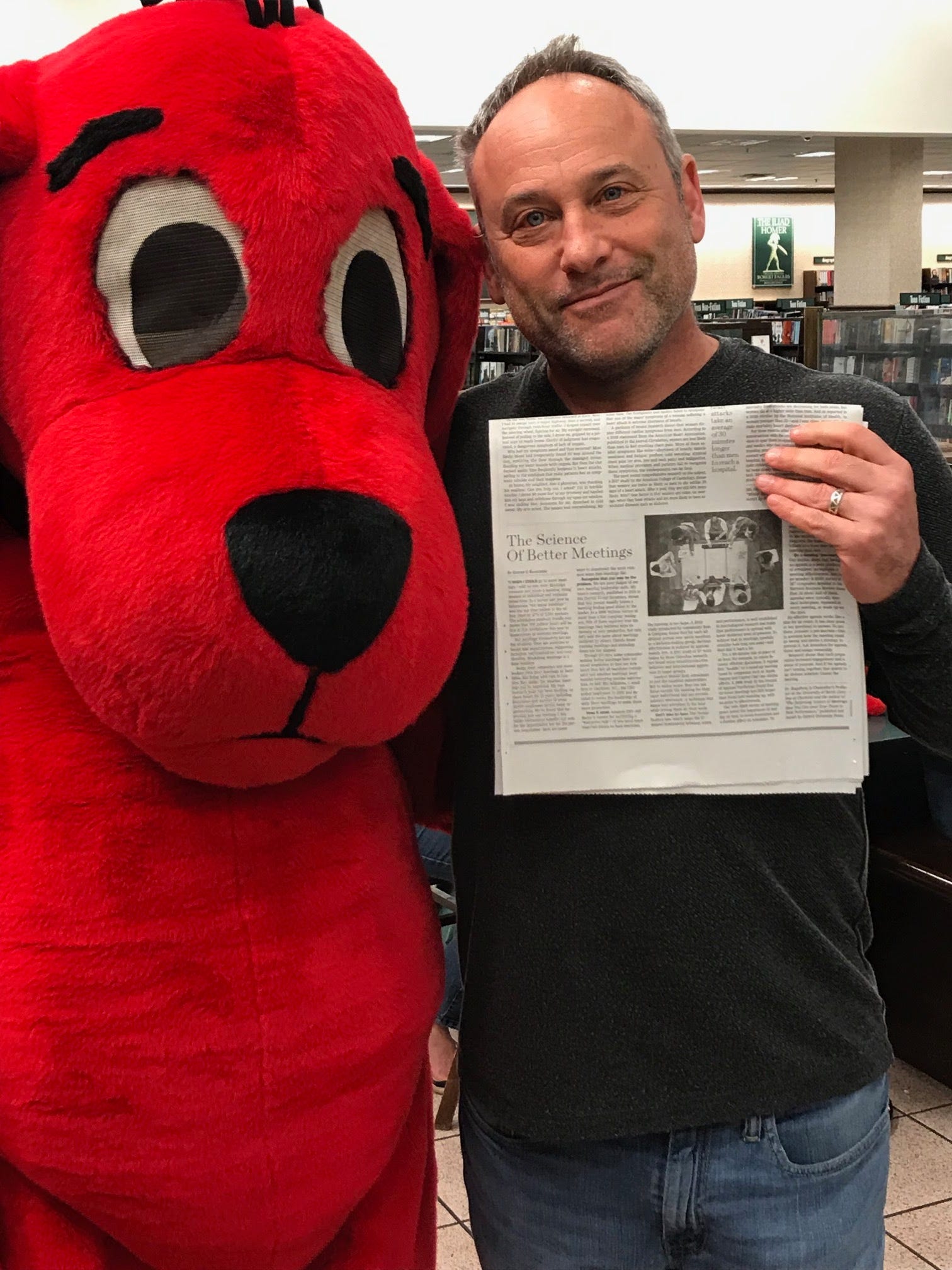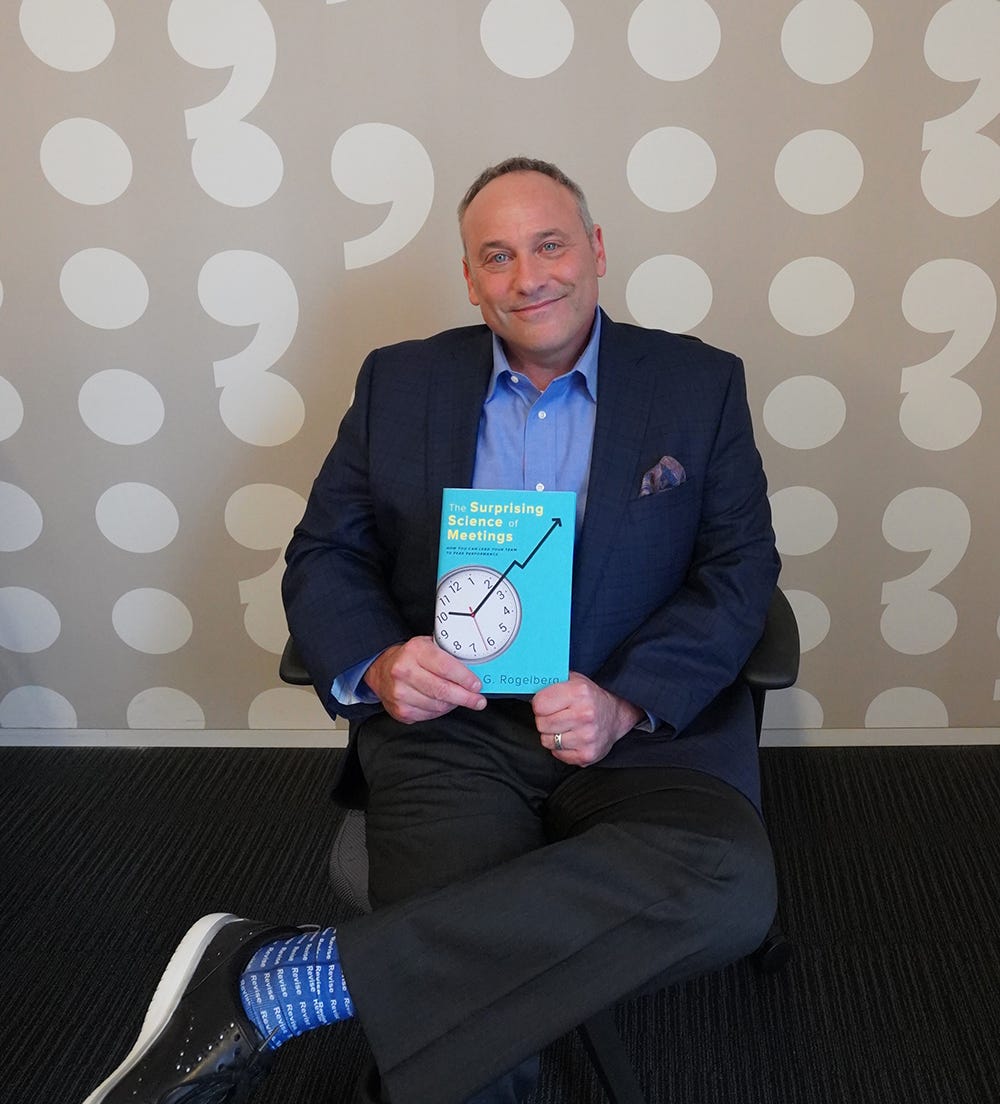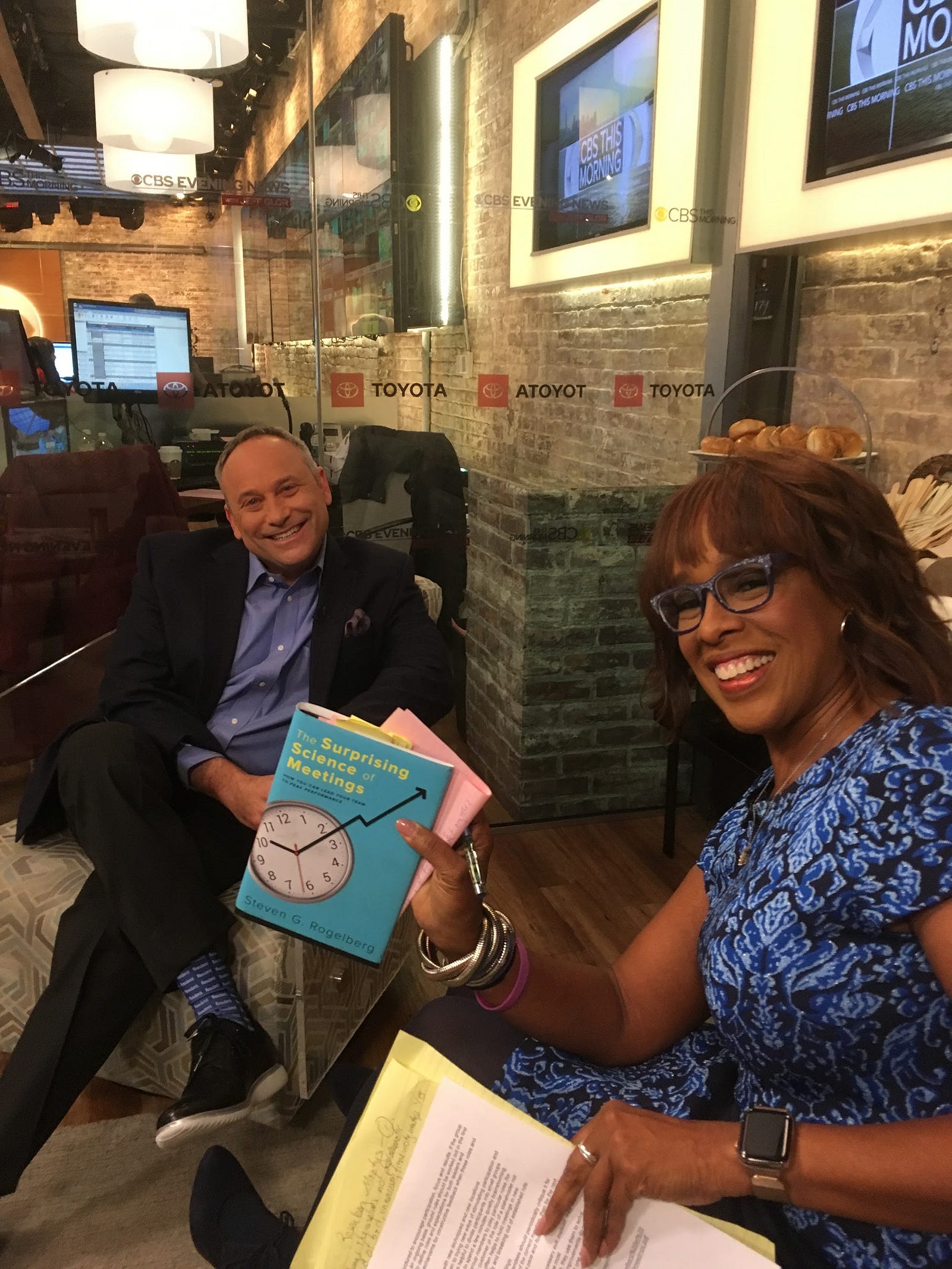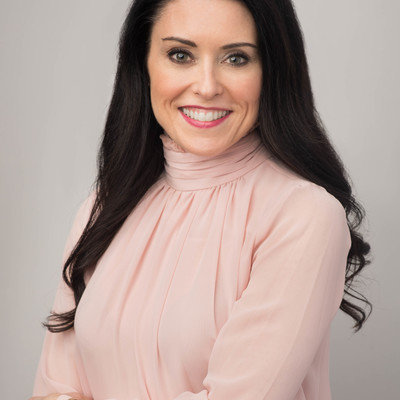Never expect success. Just do good work that you feel proud of, and give it your all. If your work is embraced by others, that is truly a bonus. However, you don’t really control that part, which is why your success should be your own standard.
As part of my interview series on the five things you need to know to become a great author, I had the pleasure of interviewing Dr. Steven Rogelberg.
Steven holds the title of chancellor’s professor at the University of North Carolina Charlotte for distinguished national, international, and interdisciplinary contributions. Dr. Rogelberg’s newest book,The Surprising Science of Meetings: How You Can Lead Your Team to Peak Performance(Oxford), was just released and was recognized by the Washington Post as the #1 leadership book to watch for in 2019 and Business Insider as one of the “Top 14 business books everyone will be reading in 2019.”
Thank you so much for joining us! Can you share a story about what brought you to this particular career path?
Ties and alarm clocks! I was a doctoral student doing an applied internship at IBM. I loved it — but, halfway through, I realized I hated wearing ties and waking up to an alarm. I switched gears, and decided that what I really wanted was to be a professor of Organizational Psychology. With that said, being a professor was the perfect choice for me, as it allows me to create knowledge through research, disseminate knowledge via writing and teaching, and apply knowledge to organizations through consulting and outreach. Plus, I have more flexibility with regards to time — no 6:00 a.m. alarms for me! — and do not have to wear a tie.
Can you share the most interesting story that occurred to you in the course of your career?
I would say the most interesting story is actually happening right now. I have been doing research on teams and meetings for about 20 years. Two years ago, I decided to write a book that distils my research findings and others’ science into evidence-based practices. It released on January 2ndand it went viral. I am still blown away that my little book on The Surprising Science of Meetings has grabbed the attention of the media and captured the interest of so many readers. I did not see it coming, and still feel the urge to pinch myself. It really speaks to the prevalence of people’s frustration with meetings and their appetite to make them better by using science.
Can you share a story about the funniest mistake you made when you were first starting?
You mean, besides spilling a full glass of water on my crotch 15 seconds before doing a keynote? Actually, many of my funniest stories involve spills in inappropriate places at undesirable times. I need to either start wearing rubber pants, or drink only from sippy cups before I present. I need to reflect more on those options — possibly an idea for my next book!
What are some of the most interesting or exciting projects you are working on now?
Not surprisingly, I am engaged in a bunch of research on… meetings! I am studying multitasking in meetings; how supervisors conduct meetings with their subordinates, and how this can be done most effectively. I am also studying the idea of “me time” and “we time,” and how meetings play into these.
I am also excited about some of the current outreach projects that I am working on. I have a passion for turning science into free initiatives for nonprofit organizations. For example, I have one effort underway focusing on the engagement and retention of animal fostering volunteers. These volunteers save the lives of countless animals, yet their role can be taxing. Through surveying these volunteers, we identify key interventions that animal foster program leaders can utilize to maximize volunteer well-being.

What is the one habit you believe contributed the most to you becoming a great writer?
Dedicating 30 minutes a day, 6 days a week, to writing — no matter what. I scheduled my ‘writing time’ first thing in the morning and religiously held to it. Writing became habitual and a part of my daily routine. I probably violated my writing rule only five or so times while producing the book. Even if pressing tasks came up, I stuck with my writing commitment. I finished my 30 minutes, and thenworked on all of the other tasks that I needed to do. This resulted in me finishing my book in a year. Once I adopted this writing practice, I found myself enjoying the process more and more– it became part of my life routine, rather than a chore or obligation.
Can you share the most interesting story that you shared in your book?
My book is a bit different than many other general audience books, in that the stories mostly involve discussions of the science behind meetings. But, science can be fun! Science is inherently interesting when it can be leveraged to solve problems in our lives that cause a lot of frustration — like the workplace meeting. With that said, I do include some anecdotes or examples in the book. Some of the stories are about meeting practices done by companies like Amazon and Google. Other stories come from interviews that I have conducted in my research. For example, I talk about this guy -true story -who loved large and bad meetings. Why? Because he could zone out and relax.
What is the main empowering lesson you want your readers to take away after finishing your book?
Be a good steward of others’ time. Meeting leaders who genuinely embrace the notion of wanting to be an excellent steward of others’ time will prepare for meetings in a manner that honors and maximizes time for all attendees. These leaders won’t want to just “dial it in”; instead, they actively make decisions that genuinely benefit the collective and are committing themselves to designing a useful and productive meeting experience. This type of leader fully embraces and enacts their key role of being a facilitator — making sure the meeting process is effective and goals are accomplished. Instead of featuring her/himself, the leader is looking to involve others, ask the right questions, manage time, model active listening, draw out concerns, and manage conflicts. In fact, in many ways the leader who is a steward of others’ time is deriving power and influence by honoring others’ time. They care about attendees’ well-being and mental health — as opposed to being a controlling and dominating boss. Don’t get me wrong: none of this precludes the leader from being directive at times, to move the discussion forward. But with a steward mindset, the give-and-take of the discussion feels more genuine to attendees. As a result, attendees are more engaged, feeling safe to provide input and overall more committed to the outcomes.
What was the biggest challenge you faced in your journey to becoming a bestselling author? How did you overcome it?
My biggest challenge: being horrible at writing a book for a general public audience. I love writing academic articles, having over 100 academic publications — it’s familiar to me. But, academic writing beats the creativity out of you. For example, adverbs are basically banned in scholarly manuscripts. When I started to write the “Surprising Science of Meetings,” I immediately started asking trusted others for feedback. As good and caring peers are willing to do, they honestly told me that “it sucked,” and gave me recommendations to move forward. This was terrifically helpful, as I ran with the feedback. I was willing to delete what I had, and start over. I eventually found my writing voice, and I love how the book came out. But, the road was rocky to start. It is important to not get discouraged. Now, I’m proud to say that I can write with two different voices depending on the audience. I have acquired a new skill, and am thankful for the learning process.

Which literature do you draw inspiration from?
Science, science, and science. I drew extensively from my research and the work of others. There is just so much good science out there. No one discipline “owns” meetings, instead the science spans across fields from psychology, to management, to communication studies, to sociology, etc. It tells a wonderfully compelling narrative. That was my inspiration. I wanted the public to understand the science behind meetings, and leverage this science to improve their meeting experiences.
How do you think your writing makes an impact in the world?
My book is a collection of evidence-based insights designed to move the dial on meetings. It represents a strategic approach that leaders and organizations can implement that is highly practical and accessible, yet strongly based in science. People are looking for evidence-based recommendations, not just opinions. I wanted to help meet this need in a truly meaningful way, through research and science. If my book can help make even 20% of meetings just 20% better — given that we have millions and millions of meetings a day — the cumulative gains for people, teams, and organizations will be massive.
What advice would you give to someone considering becoming an author like you?
Learn as much as you humanly can about your topic of interest. Immerse yourself. Then, challenge yourself to find other materials that touch your topic but may be easy to pass over. For example, I read on how birds soar and fly as a collective just to get a different perspective on human meeting tendencies. Second, never expect success. Just do good work that you feel proud of, and give it your all. If your work is embraced by others, that is truly a bonus. However, you don’t really control that part, which is why your success should be your own standard.
What are your “5 things I wish someone told me when I first started” and why.
1. That you will likely be quite bad at ‘this writing thing’ to start. But, with candid feedback that you truly embrace and lots of discipline, you will improve.
2. You will have to do a boat load of book promotion work when you are finished. This was not comfortable for me, but entirely necessary.
3. The criticality of building a strong social media presence through Linkedin, Twitter, etc. before the book comes out. You need to gather as many ears as possible so your promotion efforts get heard, see #2
4. Initially, I did not have a book agent. Hiring a book agent was a game-changer. Not only was my agent an incredible source of wisdom, but she (Jill Marsal) was able to make pitches to amazing publishers on my behalf. She was able to help me frame my messages so that they would get more traction.
5. Really understand what your publisher is willing to do (and not do) to promote the book. Getting this strongly-detailed and laid out before signing a contract is crucial to clarify expectations and get alignment.

You are a person of great influence. If you could start a movement that would bring the most amount of good to the most amount of people, what would that be?
It actually goes back to something I said earlier about being a good steward. If humans truly embraced the notion of stewardship in meetings and stewardship in all aspects of our lives, we would be a kinder, gentler, wiser, and more caring species.
How can our readers follow you on social media?
Stevenrogelberg.com
@stevenrogelberg
https://www.linkedin.com/in/rogelberg/
Thank you so much for this. This was very inspiring!


